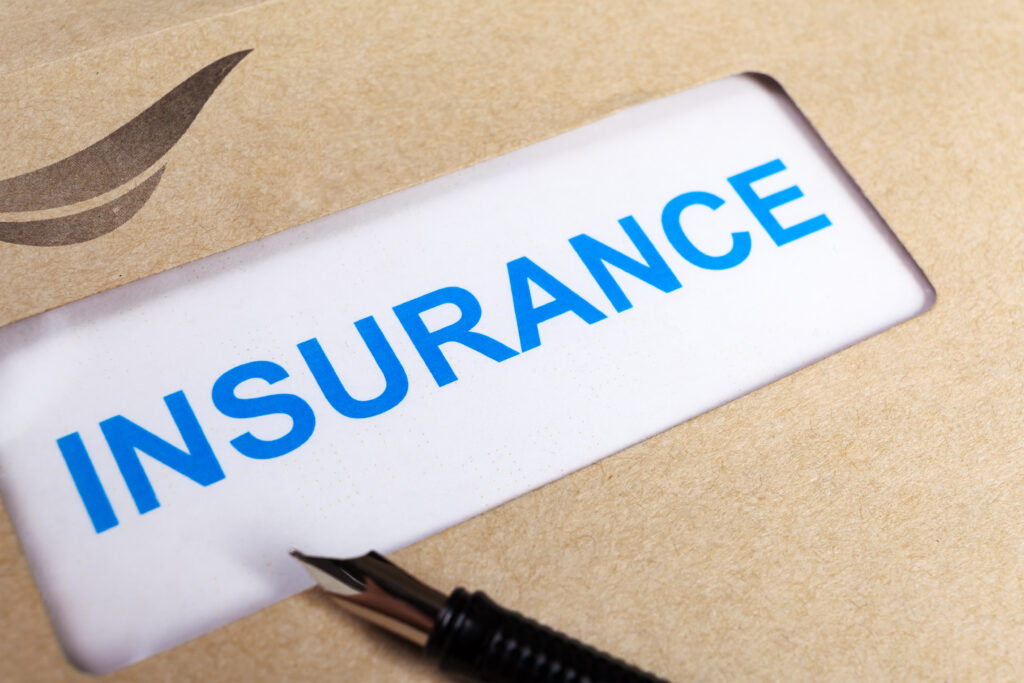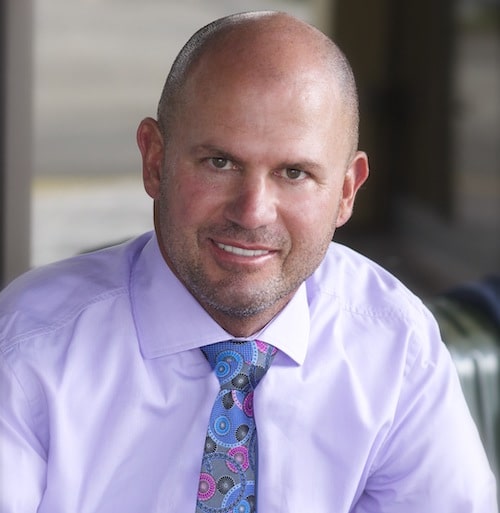Is Florida a No-Fault State?
Gregg Hollander | October 8, 2024 | Car Accidents

Florida is a no-fault state when it comes to car accidents. This means that in the event of a crash, individuals involved must first seek compensation from their own insurance company, regardless of who was at fault. While this system is designed to expedite the process and provide faster access to medical benefits and property damage coverage, it can also lead to unfair challenges in certain cases.
In such situations, it is in your best interest to have legal representation to ensure your rights are protected, you receive fair compensation, and all legal options are considered. Contact an experienced Boca Raton personal injury attorney near you who is well-versed in car accident cases to guide you through a no-fault claim.
What Is No-Fault Insurance?
No-fault insurance is a type of coverage that requires every driver to carry personal injury protection (PIP) insurance. PIP insurance provides coverage for medical expenses and lost income resulting from a car accident, regardless of who caused the crash. The purpose of no-fault insurance is to streamline the claims process and reduce the burden on the court system.
The minimum PIP coverage required in Florida is $10,000 for medical expenses and $5,000 for death benefits. This coverage is available to the policyholder and their immediate family members, regardless of who was driving the vehicle at the time of the accident. Drivers can elect to have more than $10,000 in PIP coverage.
No-fault insurance is a type of auto insurance system designed to limit lawsuits after car accidents and ensure injured parties receive compensation for their medical expenses and lost income, regardless of who is at fault for the accident.
The key idea behind no-fault insurance is to simplify the claims process and reduce the number of lawsuits stemming from minor accidents. Instead of having to prove that the other driver was at fault to receive compensation, drivers turn to their insurance policies to cover immediate medical expenses. This system can speed up the recovery process for accident victims. Still, it also limits when and how injured drivers can file lawsuits against the other driver for additional compensation.
Limited Right to Sue

One of the defining features of Florida’s no-fault system is the limitation on lawsuits. In most cases, you cannot sue the other driver for additional damages (such as pain and suffering) unless your injuries meet certain severity thresholds. This limitation is intended to reduce the number of minor accident-related lawsuits that go to court.
Under Florida law, you can only file a lawsuit against the at-fault driver if your injuries are classified as “serious” according to specific legal criteria. These criteria include:
- Permanent injury: An injury that causes permanent loss of bodily function or significant scarring or disfigurement.
- Significant and permanent loss of an important bodily function: This can include injuries that impair your ability to walk, use your hands, or perform daily activities.
- Death: If the accident results in death, the family of the deceased may file a wrongful death lawsuit against the at-fault driver.
If your injuries do not meet these criteria, you will be limited to seeking compensation through your PIP coverage, even if the other driver was clearly at fault for the accident.
Optional Coverage Beyond PIP
While PIP is the only type of insurance coverage required under Florida’s no-fault system, many drivers choose to purchase additional coverage to protect themselves in case of a severe accident. Here are some of the most common optional coverages that Florida drivers may want to consider:
- Bodily Injury Liability (BIL): Although not required in Florida, BIL coverage can protect you if you are at fault for an accident and the other driver’s injuries exceed their PIP coverage. It pays for the other driver’s medical expenses and any legal fees if you are sued.
- Uninsured/Underinsured Motorist (UM/UIM) Coverage: This coverage protects you if you are involved in an accident with a driver who has little or no insurance. Since Florida does not require drivers to carry bodily injury liability insurance, UM/UIM coverage can be critical in cases where the other driver is uninsured or underinsured.
- Collision Coverage: This optional coverage pays for damage to your vehicle, regardless of who caused the accident. Without this coverage, you would need to pay out-of-pocket for repairs to your vehicle if you are at fault or the at-fault driver does not have enough insurance.
Purchasing additional coverage beyond the state minimum requirements can provide you with more comprehensive protection in the event of an accident.
Medical Treatment Requirements and Time Limits
Florida’s no-fault insurance system places specific requirements on accident victims in terms of medical treatment and time limits for making a PIP claim. After a car accident, you must seek medical treatment within 14 days to be eligible for PIP benefits. It is an important deadline because if you fail to see a doctor within this window, you may lose your right to access PIP benefits for your injuries.
Additionally, Florida law limits PIP payouts based on the severity of your injuries. Your PIP coverage is capped at $2,500 if your injuries are classified as non-emergency. Only injuries classified as “emergency medical conditions” (EMCs) by a healthcare provider will qualify for the entire $10,000 in PIP benefits.
An EMC is defined as a medical condition that requires immediate medical attention and can reasonably be expected to result in serious jeopardy to the patient’s health. It’s important to note that not all injuries, even those that initially seem serious, will meet this legal definition. It can impact how much compensation you receive from your PIP coverage.
Pros and Cons of Florida’s No-Fault Insurance System

Depending on your perspective, the no-fault insurance system in Florida has advantages and disadvantages. Understanding these pros and cons can help you navigate the system more effectively and make informed decisions about your auto insurance coverage.
Pros
- Faster Access to Compensation: One of the main benefits of the no-fault system is that it allows accident victims to receive compensation for their medical bills and lost income quickly. You don’t have to wait for the insurance companies to determine who was at fault before receiving benefits.
- Reduced Litigation: The limitations on lawsuits in no-fault states help to reduce the number of personal injury claims that go to court. This can reduce drivers’ insurance premiums and alleviate the burden on the court system.
- Guaranteed Medical Coverage: Regardless of fault, you are entitled to compensation for your medical expenses up to the limits of your PIP coverage. Knowing that you can access treatment after an accident provides peace of mind.
Cons
- Limited Compensation: PIP coverage only goes so far. You may struggle to cover your expenses if your medical bills and lost income exceed the PIP limits (especially if you only qualify for the $2,500 cap). Additionally, compensation for non-economic damages, such as pain and suffering, is limited unless your injuries meet the legal threshold for a lawsuit.
- Higher Insurance Costs: Florida’s no-fault system has been criticized for contributing to higher auto insurance premiums. Because all drivers must carry PIP coverage and the system is prone to fraud (e.g., staged accidents or inflated medical claims), insurance costs tend to be higher in no-fault states.
- Complex Legal Thresholds: The threshold for filing a lawsuit can be complicated and may prevent you from seeking full compensation for serious injuries. In some cases, accident victims may feel that the system unfairly limits their right to pursue legal action, even when another driver is clearly at fault.
What No-Fault Insurance Covers
No-fault insurance covers certain expenses related to a car accident, regardless of fault. These expenses typically include:
Medical Expenses
No-fault insurance provides coverage for necessary medical treatment and related expenses resulting from a car accident. This coverage includes doctor visits, hospital stays, surgeries, rehabilitation, medications, and other medical services necessary for recovery.
Lost Income
If you are unable to work due to injuries sustained in a car accident, no-fault insurance can provide coverage for a portion of your lost income. The coverage typically ranges from 60 percent to 80 percent of your average weekly income, up to the policy limit.
Death Benefits
In the unfortunate event of a fatal car accident, no-fault insurance provides death benefits to the surviving family members. These benefits can help cover funeral expenses and provide financial support to dependents.
Property Damage
No-fault insurance also covers a portion of the property damage from a car accident. It includes repairs to your vehicle or the replacement value if the vehicle is deemed a total loss.
When to Seek Legal Representation
While the no-fault insurance system in Florida simplifies the claims process, there are situations where legal representation becomes necessary to protect your rights and ensure fair compensation. Here are some scenarios where you may need to seek the assistance of a Florida personal injury lawyer:
Severe Injuries
If you have sustained severe injuries in a car accident, the compensation provided by your no-fault insurance may not be sufficient to cover all your medical expenses and future care needs. A personal injury lawyer can help assess the value of your claim, negotiate with insurance companies, and pursue additional compensation through a lawsuit if necessary.

Disputed Liability
In some cases, the at-fault party or their insurance company may dispute liability, arguing that you were partially or fully responsible for the accident. When liability is contested, it is imperative to have a Florida personal injury lawyer who can gather evidence, interview witnesses, and build a strong case to prove the other party’s negligence.
Substantial Property Damage
If your vehicle has sustained significant damage in a car accident, the cost of repairs or replacement may exceed the limits of your no-fault insurance coverage. A personal injury lawyer can help explore additional options for compensation and ensure that you receive a fair settlement for your property damage.
Permanent Disability or Loss of Income
If your car accident resulted in a permanent disability that prevents you from working or significantly impacts your earning capacity, a Florida personal injury lawyer can help pursue compensation for future lost income, medical expenses, and other damages.
Why You Need an Experienced Florida Personal Injury Attorney
No-fault claims can be complex, especially when dealing with severe injuries, disputed liability, or substantial property damage. Having an experienced Florida personal injury attorney by your side can provide numerous benefits:
Legal Experience
Personal injury attorneys handle car accident cases and understand the nuances of the legal system. They have the necessary knowledge and experience to navigate the claims process, negotiate with insurance companies, and fight for your rights.
Case Evaluation
An experienced attorney can evaluate the strength of your case and determine the maximum compensation you may be entitled to. They can review your medical records, gather evidence, and consult with experts to build a solid case on your behalf.
Negotiation Skills
Insurance companies are notorious for offering low settlement amounts to accident victims. A skilled Florida personal injury attorney can negotiate with the insurance company to ensure you receive fair compensation for your injuries, medical expenses, lost income, and other damages.
Trial Representation
If a fair settlement cannot be reached through negotiation, your attorney can take your case to trial and represent your interests in court. They will present evidence, call witnesses, and argue your case, working tirelessly to secure a favorable outcome.
Contact a Florida Personal Injury Attorney Today

Gregg M. Hollander, Boca Raton, FL Personal Injury Attorney
Florida’s no-fault insurance system provides certain benefits and simplifies the claims process for car accidents. However, in cases involving severe injuries, disputed liability, or substantial property damage, seeking legal representation is imperative to protect your rights and ensure fair compensation. Contact a knowledgeable Florida personal injury attorney near you who is well-versed in car accident cases to guide you through the ins and outs of a no-fault claim and advocate for your best interests. Remember, you don’t have to face filing this claim alone, your attorney will be your trusted advisor, helping you manage the legal process and fight for the compensation you deserve.
